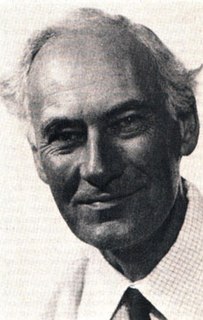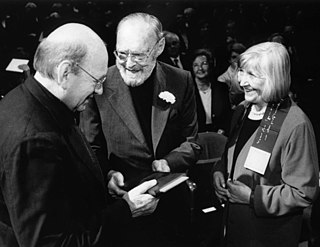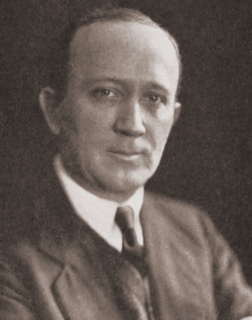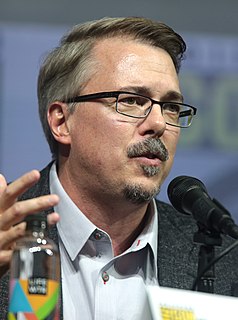A Quote by Paul Feyerabend
Science is much closer to myth than a scientific philosophy is prepared to admit. It is one of the many forms of thought that have been developed by man, and not necessarily the best. It is conspicuous, noisy, and impudent, but it is inherently superior only for those who have already decided in favour of a certain ideology, or who have accepted it without ever having examined its advantages and its limits.
Related Quotes
Many people correctly make the point that our only hope is to turn to God. For example, Charles Lindbergh, who said that in his young manhood he thought "science was more important than either man or God," and that "without a highly developed science modern man lacks the power to survive," . . . went to Germany after the war to see what Allied bombing had done to the Germans, who had been leaders in science. There, he says, "I learned that if his civilization is to continue, modern man must direct the material power of his science by the spiritual truths of his God."
It is an odd fact of evolution that we are the only species on Earth capable of creating science and philosophy. There easily could have been another species with some scientific talent, say that of the average human ten-year-old, but not as much as adult humans have; or one that is better than us at physics but worse at biology; or one that is better than us at everything. If there were such creatures all around us, I think we would be more willing to concede that human scientific intelligence might be limited in certain respects.
I confess that I have not cleared a path through all seven hundred pages, I confess to having examined only bits and pieces, and yet I know what it is, with that bold and legitimate certainty with which we assert our knowledge of a city, without ever having been rewarded with the intimacy of all the many streets it includes.
Nothing is more unjust, however common, than to charge with hypocrisy him that expresses zeal for those virtues which he neglects to practice; since he may be sincerely convinced of the advantages of conquering his passions without having yet obtained the victory as a man may be confident of the advantages of a voyage or a journey, without having courage or industry to undertake it, and may honestly recommend to others those attempts which he neglects himself.
Unless you had developed a certain independence of value, a certain independent system of value, a system of values that was independent from this middle-class drive for recognition. This has been my explanation of part of [Martin Luther King] general role. So, he accepted this without too much resistance. In fact, none that I could ever see, and at certain points I was close enough to see something.
An important tradition within westren philosophy believes in the primacy of natural science as a guide to truth. This is sometimes met with the charge that such an allegiance amounts to scientism - the view that the only things that really exist are those recognized by fundamental physical theory, and that the only forms of genuine knowledge are scientific ones.
As time went by we developed a sort of ideology without ever formulating it as such. I've always said that we are documenting the sacred buildings of Calvinism. Calvinism rejects all forms of art and therefore never developed its own architecture. The buildings we photograph originate directly from this purely economical thinking.
Although the formulations of science now offer the most advanced knowledge of nature, men continue to use obsolete forms of thought long discarded by scientific theory. In so far as these obsolete forms are superfluous for science, the fact that they persist violated the principle of the economy of thought, that characteristic trait of the bourgeois temper.
[The Head of Radio Three] had been ensnared by the Music Director of the college and a Professor of Philosophy. These two were busy explaining to the harassed man that the phrase "too much Mozart" was, given any reasonable definition of those three words, an inherently self-contradictory expression, and that any sentence which contained such a phrase would be thereby rendered meaningless and could not, consequently, be advanced as part of an argument in favour of any given programme-scheduling strategy.
And what is an authentic madman? It is a man who preferred to become mad, in the socially accepted sense of the word, rather than forfeit a certain superior idea of human honor. So society has strangled in its asylums all those it wanted to get rid of or protect itself from, because they refused to become its accomplices in certain great nastinesses. For a madman is also a man whom society did not want to hear and whom it wanted to prevent from uttering certain intolerable truths.
A US Department of Education; implementation of a scientific materialist philosophy; studies, being cleansed of religious, patriotic and other features of the bourgeois ideology; students taught on the basis of Marxian dialectical materialism, internationalism and general ethics of a new socialist society; present obsolete methods of teaching will be superseded by a scientific pedagogy. The whole basis and organization of capitalist science will be revolutionized. Science will become materialistic, hence truly scientific. God will be banished from the laboratories as well as from the schools.
Having certain limits - not too many, but certain limits on an ability to tell a story - makes us work harder, me and my writers. Sometimes I watch a giant movie with a $250 million budget and I think they feel kind of bloated, and that if they'd been leaner and meaner they might've had better storytelling.








































